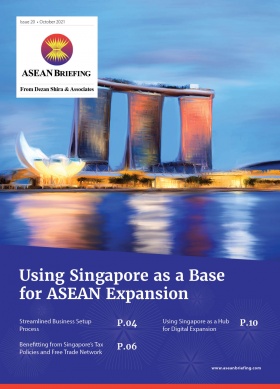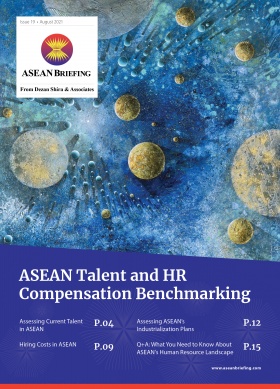Indonesia’s President Becomes First Asian Leader to Visit Ukraine and Russia, Since Conflict
Indonesian President Joko Widodo became the first Asian leader to visit Ukraine and Russia since the beginning of the conflict. The President came with a mission to be a peace broker between Russia and Ukraine and avert a looming global food crisis.
During President Widodo’s visit to Moscow, President Putin agreed to provide security guarantees for the export of Ukrainian wheat and Russian fertilizer, which will be a welcome development for nations feeling the pinch of rising food prices.
Although Indonesia has condemned Russia for its invasion of Ukraine, the country has refrained from joining the international campaign of imposing sanctions. Further, as chair of this year’s G20 Presidency, President Widodo has invited President Putin and President Zelensky to the G20 summit in Bali, later this year.
Indonesia’s President Joko Widodo (also known as Jokowi) became the first Asian leader to visit Ukraine and Russia, during the current conflict.
The President, along with his wife, arrived in Kyiv on June 29, 2022, and met with President Zelensky before continuing his journey to Moscow to meet President Putin on June 30. During his meeting with President Zelensky, President Jokowi offered to play the role of mediator and peace broker between Russia and Ukraine. During his visit to Moscow, President Putin agreed to provide security guarantees for the export of Ukrainian wheat and Russian fertilizer, with the hope to avert a global food crisis by freeing up the export of Ukrainian wheat. Further, President Widodo delivered a message from President Zelensky to President Putin.
Indonesia, however, has close historical ties with Russia that date back to 1945, when the Soviet Union supported Indonesia’s struggle for independence. Further, Russia has also been a significant source of military hardware ranging from armored vehicles to fighter jets. Widodo and Putin also discussed increasing trade and investments between Indonesia and Russia.
President Widodo’s visit comes after he attended the G7 meeting in Germany for bilateral talks. Indonesia currently holds the G20 Presidency, with the summit set to be held in Bali in November 2022. The country has maintained a neutral position on the conflict and President Widodo has invited both President Zelensky and President Putin to attend the G20 summit to further defuse tensions.Like many Asian nations, Indonesia has condemned the invasion but has not imposed sanctions on Russia, fearing the economic impacts of a prolonged conflict during its G20 Presidency.
How has the Russia-Ukraine conflict impacted Indonesia?
Like most countries worldwide, Indonesia has been indirectly impacted by the Russia-Ukraine conflict.
Wheat imports
When it comes to wheat, Indonesia is the world’s second-largest importer with Ukraine being its main supplier. The country imported some US$1 billion worth of wheat from Ukraine in 2021. Although wheat is not a staple food in Indonesia, it is used to make instant noodles and the country consumes an average of 12 billion servings every year, behind only China.
As Ukrainian wheat is being withheld from global markets, Indonesian flour mills are scrambling to find alternative sources. Australia is limited in its ability to boost wheat exports due to forward selling with the markets of Russia, India, the US, and Canada as the only source of wheat. However, being a seasonal crop, Indonesian wheat importers are also competing with other countries in the region.
Palm oil
At the end of April 2022, Indonesia initiated a ban on the export of palm oil as the country battled with domestic cooking oil shortages and high prices. Ironically, Indonesia is the world’s largest producer of crude palm oil (CPO). Such a move placed extra pressure on global food prices.
Palm oil is by far the most consumed and traded edible oil in the world. Its high-quality oil is used as a common ingredient for a variety of products from detergents to margarine, to soaps, to cleaning products, among many others.
The Russia-Ukraine conflict caused global cooking oil prices to rocket since Russia and Ukraine accounted for 55 percent of global sunflower oil output. This placed pressure on CPO prices as buyers turned to palm oil to compensate for the loss of supply of sunflower oil from the Black Sea region.While the Indonesian government eventually lifted its ban on palm oil exports on May 25, palm oil producers must adhere to a domestic market obligation scheme, whereby a certain percentage of their production is designated for the domestic market.
Energy
The Russia-Ukraine conflict has further exposed the vulnerability of Indonesia’s energy sector to external shocks. As global oil prices increased to over US$100 per barrel, the Indonesian government was forced to increase the price of non-subsidized fuel from 9,000 rupiah (US$0.60) to 12,500 rupiah (US$0.83) per liter. Moreover, the government is planning a scheme that will allow certain vehicles to use subsidized fuel, priced at 7,650 rupiah (US$0.51) per liter.
Oil accounted for 31 percent of Indonesia’s energy mix in 2021, but the country is only capable of producing some 600,000 barrels per day. Rising oil prices have thus escalated the cost of the country’s energy subsidies.
Energy subsidies are applied to commodities such as fuel, electricity, and liquid petroleum gas (LPG). In 2021, total energy subsidies cost the government US$9 billion.
Small victories
Given the complexity of the conflict, the chances of mediating a peace deal remain limited, despite Indonesia enjoying good relations with Ukraine and Russia. Many western nations have threatened to boycott the G20 meeting in Bali if President Putin is allowed to attend.
For President Jokowi, the threat of a G20 derailment and the increasing cost of living has seen him step into an unfamiliar role as a possible ‘peace broker’. As mentioned, President Jokowi was given assurance from his Russian counterpart that Moscow will permit the export of food and fertilizers from the Black Sea region.
However, if the Indonesian President succeeds in securing even a small part of Ukraine’s wheat exports, it will be a welcome development for nations most vulnerable to the looming global food crisis.
Further Reading
- Comparing Mexico and Indonesia as Manufacturing Hubs for US Investors
- The RCEP to Encourage Investments in Indonesia’s Downstream Industries
- Indonesia Ponders Issuing Five Year, Tax Free ‘Digital Nomad’ Visas
About Us
ASEAN Briefing is produced by Dezan Shira & Associates. The firm assists foreign investors throughout Asia and maintains offices throughout ASEAN, including in Singapore, Hanoi, Ho Chi Minh City, and Da Nang in Vietnam, Munich, and Essen in Germany, Boston, and Salt Lake City in the United States, Milan, Conegliano, and Udine in Italy, in addition to Jakarta, and Batam in Indonesia. We also have partner firms in Malaysia, Bangladesh, the Philippines, and Thailand as well as our practices in China and India. Please contact us at asia@dezshira.com or visit our website at www.dezshira.com.







